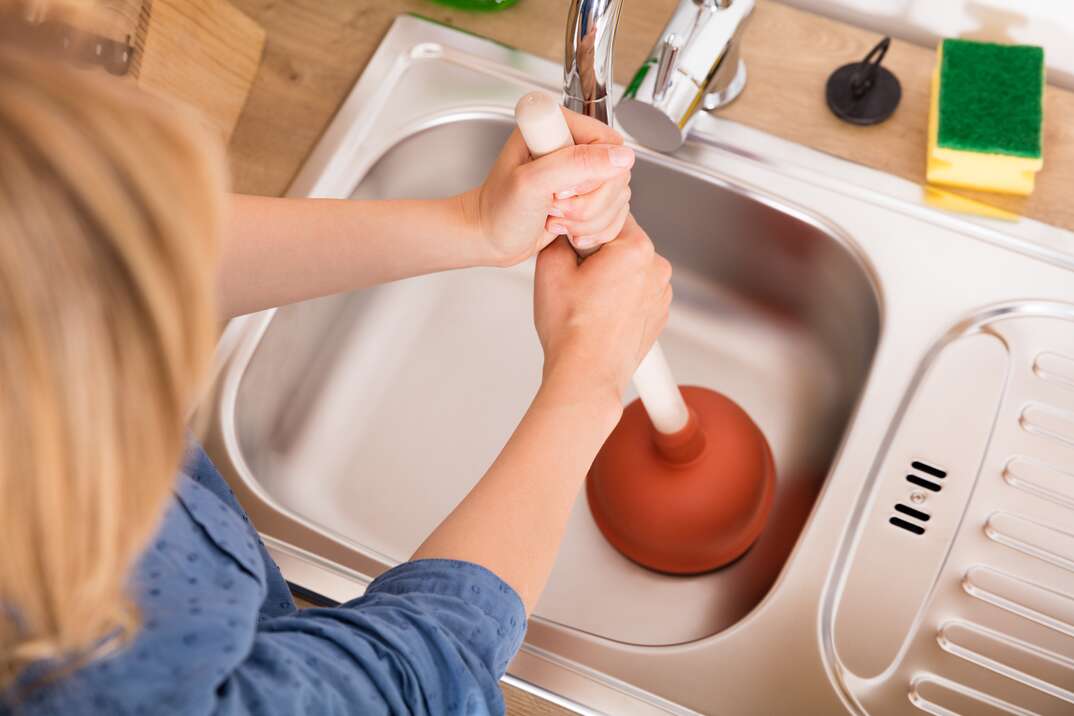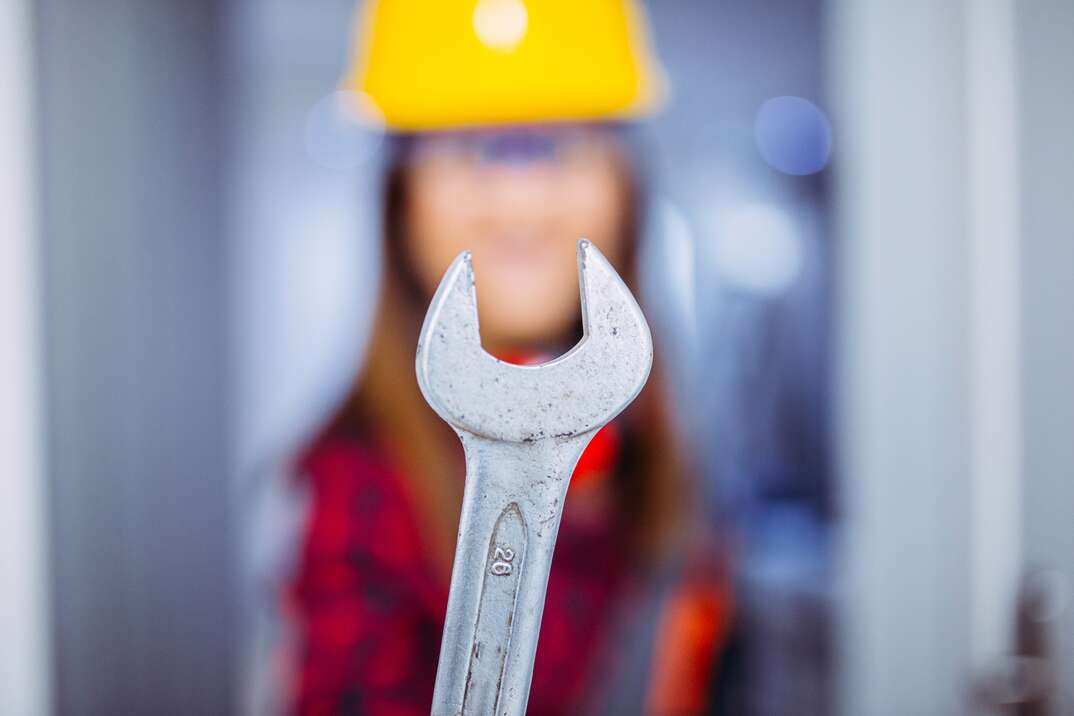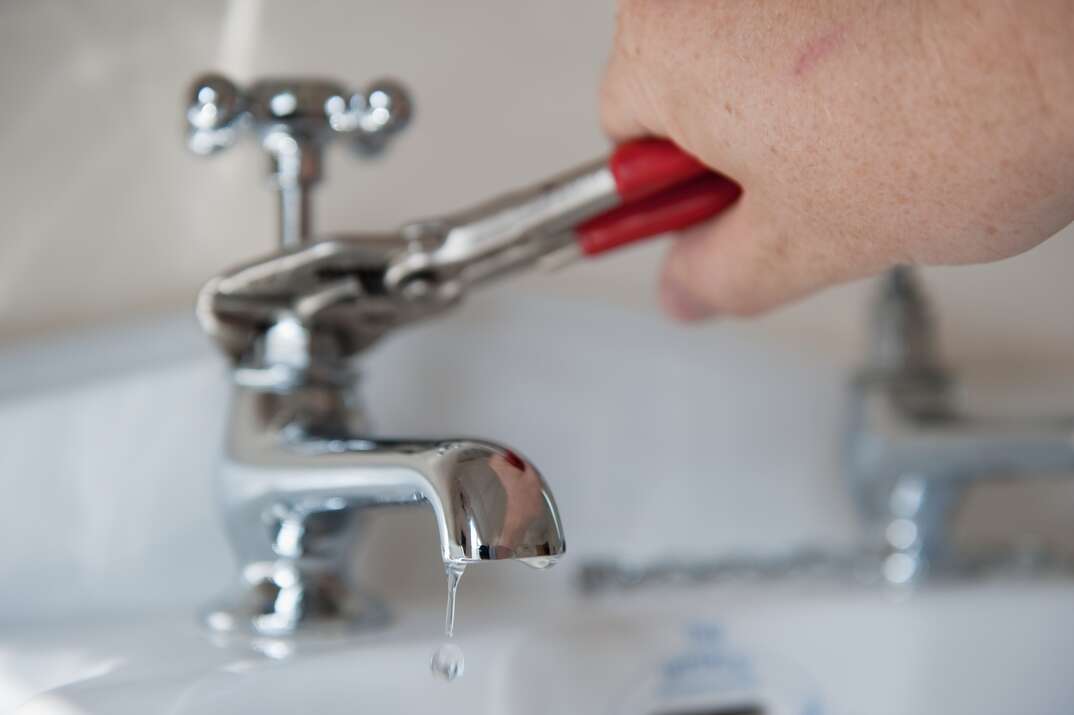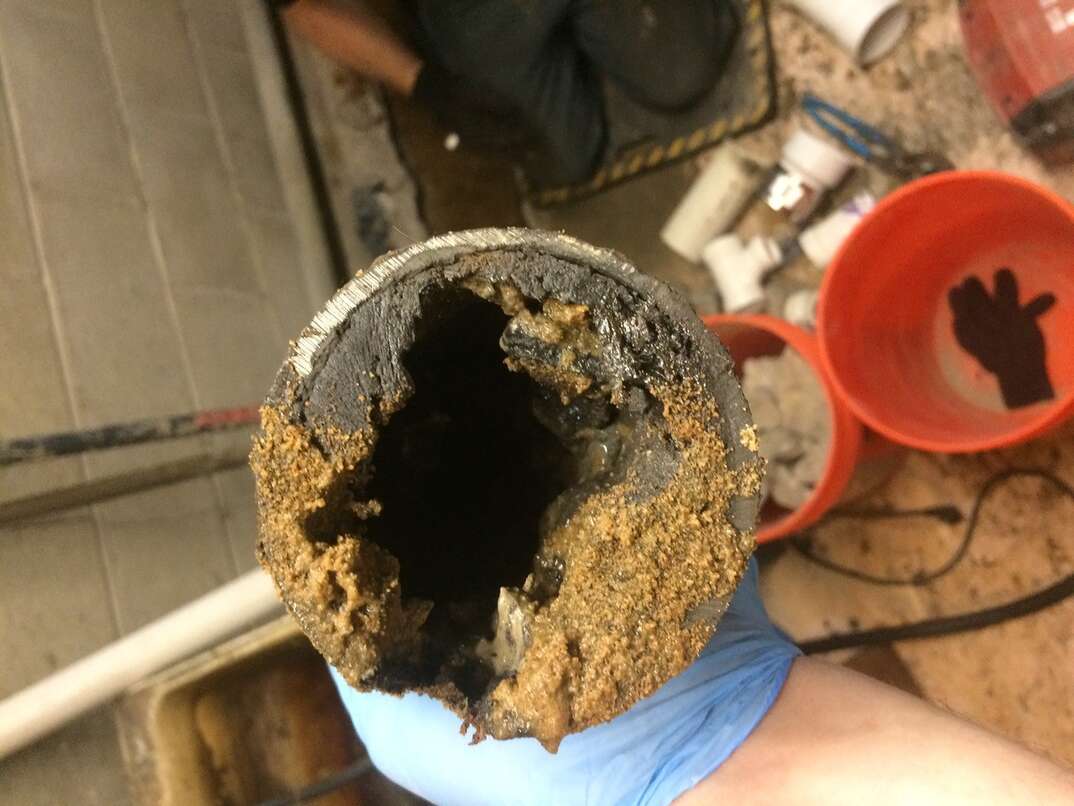9 Common Plumbing Myths — Busted

From the outside, your plumbing system might seem simple, but go a bit deeper, and you’ll find an intricate network of pipes and fixtures that can all have major issues. Because plumbing systems are often mysterious to homeowners, it’s no wonder certain myths have cropped up about their inner workings.
This May Also Interest You: How Do You Flush a Toilet Without Running Water?
Acting on common plumbing myths can make plumbing problems worse or introduce new issues that can damage fixtures, cause water damage or require expensive professional repairs. These are some of the biggest plumbing myths going around. Here’s how to avoid unintentionally damaging your plumbing system.
Steer Clear of These Plumbing Myths
These plumbing “tips” are often passed down through generations. Kids see their parents putting a brick in the toilet tank or pouring drain cleaner down the sink to clear clogs and assume it's the best way to handle plumbing issues. The following plumbing myths are some of the most common ones people share.
1. Drain Cleaners Are Safe and Effective
It's easy to assume that drain-cleaning products are safe and effective if they're sold in stores, but they can actually be very dangerous. The harsh ingredients used in these drain openers are often damaging and can cause your pipes to deteriorate. If you breathe them in, splash them on your skin or get them in your eyes, they can cause serious injuries.
Drain cleaners don't always work all that well, either. That might lead you to try other methods, such as additional drain-cleaning products, which can cause a serious chemical reaction if combined. If you use a plunger after putting drain opener in your drain, the plunger could splash the product on you. Instead, it’s best to try plungers and augers initially without the addition of drain-opening products.
2. Flushable Wipes Are Flushable
Despite the name, flushable wipes aren't really safe to flush. Toilet paper is designed to break down, so it goes down the drain when you flush your toilet and doesn't easily clog up the sewer or septic system. However, flushable wipes don't disintegrate as toilet paper does, so they can often clog up the system. It might flush down your toilet, but it can create deeper issues in your system. Toilet paper and human waste are the only things you should flush.
3. Minor Leaks Are Nothing to Worry About
If your sink only has a minor drip, you might not think much of it. However, every drip adds up and can lead to gallons of wasted water. The leaky faucet will likely get worse, which can cause more damage and even more wasted water. Handling a plumbing leak as soon as you notice it prevents the issue from getting worse.
4. Lemon Peels Are Good for Garbage Disposals
There's a good chance someone has told you to put lemon peels down your garbage disposal to freshen it up. Citrus peels can damage the disposal. Even though the chopped-up lemons might temporarily freshen your kitchen, they can make the blades dull. The citric acid can also cause the metal blades to corrode, and the peels can clog your garbage disposal. Instead, use a cleaner designed for garbage disposals, and always disconnect the power if you're wiping the blades or other garbage disposal components.
More Related Articles:
- Never Flush These 11 Things Down Your Toilet
- 5 Things You Should Know About Your Plumbing Vents
- Got Plumbing Problems? Here’s What Plumbing Issues Homeowners Insurance Covers … and What It Doesn’t
- Pipe Burst? Here’s What to Do Next
- 15 Common Plumbing Problems Every Homeowner Needs to Watch Out For
5. If It Goes Down the Drain, There’s Nothing to Worry About
For the most part, if your toilets flush and the drains drain well, your plumbing should be working fine. However, sometimes clogs can build up inside the pipes even when water is still flowing. Some clogs start small and gradually build up as more gunk goes down the drains, which means the problem could be growing in the pipes without you realizing it. If you notice the water starts to take longer to drain or you notice other unusual things, having your drains cleaned could help you avoid a major clog or backup.
6. Pipes Only Freeze If the Heat Is Off
You might think the only way your pipes can freeze is if you lose power or your furnace stops working. However, some pipes can freeze even if your heat is working fine. Pipes that run through exterior walls without much insulation or in areas like basements and attics that aren't insulated can freeze, even if your furnace is still running. Freezing can often lead to a burst pipe, which can cause serious water damage. Monitor your pipes carefully in freezing weather. Leaving cabinet doors under sinks open and insulating pipes in uninsulated areas can minimize the risk of freezing.
7. Putting a Brick in the Toilet Tank Will Save Money
A brick in the toilet tank is supposed to save you money by using less water, but it can cause toilet issues. Your toilet tank needs a certain amount of water in it to flush the toilet properly. The brick can make the flushing worse by decreasing how much water the toilet has. The brick could break apart and cause issues inside your toilet.
8. Plumbing Is Easy to Fix Yourself
All homes eventually need plumbing repairs. It's tempting to tackle them yourself to save money, but many repairs are better left to professional plumbers. DIY repairs could lead to bigger problems that cost a lot more to fix. Before trying to fix a plumbing issue yourself, ensure you're fully equipped to make the repair.
9. Any Plumber Can Handle Your Issues
Some people believe that all plumbers are the same and can handle all plumbing issues. Most states require plumbers to be licensed, but they don't all have the same credentials or training. Not all plumbers are equally reliable or knowledgeable on plumbing issues, so it's important to check reviews and ratings to look for red flags.
If you have a very specific issue, it's a good idea to find a plumber with extensive experience in that issue. For example, if your tankless water heater isn't working properly, ensure you find a plumber who has worked on a lot of tankless water heaters and not just traditional tank types.


